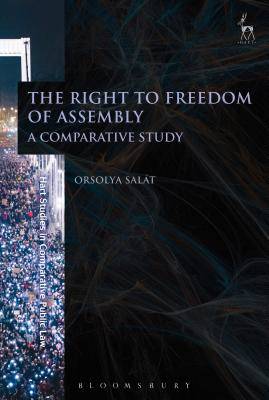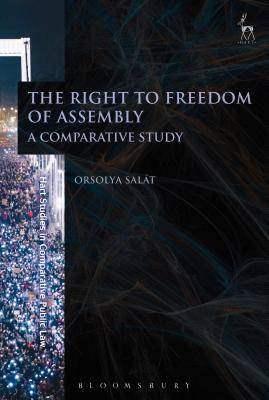
- Afhalen na 1 uur in een winkel met voorraad
- Gratis thuislevering in België vanaf € 30
- Ruim aanbod met 7 miljoen producten
- Afhalen na 1 uur in een winkel met voorraad
- Gratis thuislevering in België vanaf € 30
- Ruim aanbod met 7 miljoen producten
Zoeken
Omschrijving
In legal decisions and commentary, freedom of assembly is widely cherished as a precious human right and as indispensable for the preservation of democratic governance. But despite this rhetoric assemblies are subject to extensive regulation, such as prior restraints, and restrictions on the time, place and manner of assemblies.
This comparative study examines five influential jurisdictions and reveals similarities and inconsistencies between them. It finds that freedom of assembly is often subjugated to freedom of expression in a way that disregards the expressive potential of assemblies. The shortcomings include the misconstrued content neutrality and public forum doctrines in the US, blanket bans and other restrictions based on intangible and distant harm in the UK, preventative restrictions and viewpoint discrimination in Germany, and the uncertain status of freedom of assembly and opaque judicial reasoning in France. Such inconsistencies also present challenges for the European Court of Human Rights in developing a coherent assembly doctrine. The book argues that it is time for jurisprudence to move away from a narrowly focused concept of expression, and recognise the creative and expressive value of freedom of assembly.Specificaties
Betrokkenen
- Auteur(s):
- Uitgeverij:
Inhoud
- Aantal bladzijden:
- 314
- Taal:
- Engels
- Reeks:
- Reeksnummer:
- nr. 6
Eigenschappen
- Productcode (EAN):
- 9781509916016
- Verschijningsdatum:
- 1/11/2017
- Uitvoering:
- Paperback
- Formaat:
- Trade paperback (VS)
- Afmetingen:
- 155 mm x 231 mm
- Gewicht:
- 498 g

Alleen bij Standaard Boekhandel
+ 196 punten op je klantenkaart van Standaard Boekhandel
Beoordelingen
We publiceren alleen reviews die voldoen aan de voorwaarden voor reviews. Bekijk onze voorwaarden voor reviews.








